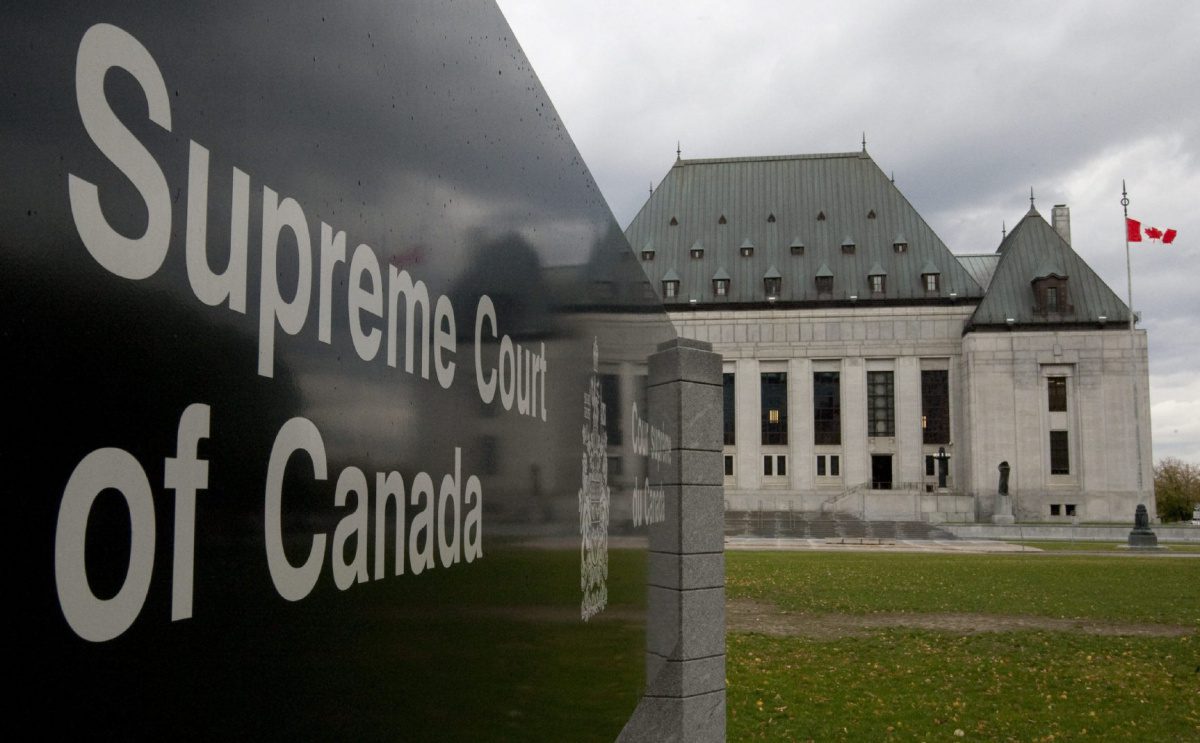Prime Minister Trudeau's recently-unveiled plan for reforming the process through which our Supreme Court justices are chosen is a revealing case study of the low regard in which Canadian progressives continue to hold democracy, even as they push change in its name.
Canada currently has a Supreme Court appointment regime that's one of the world's most regressive. You can pick virtually any other country on the planet and find a process more open and accountable than ours. The constitution of Nigeria, for instance, mandates that the president nominate Supreme Court justices on the advice of a group of senior judges known as the "National Judicial Council," with the country's elected Senate then voting to confirm or reject. In Indonesia, their judicial council makes suggestions to the entire parliament, who then vote on them, with the president having final veto. In Uzbekistan judges are nominated by the president and approved by the Senate. You get the idea.
In Canada, by contrast, our constitution gives sole authority for judicial appointments to the PM. This dictatorial control over the highest leadership of an entire branch of government has always sat uncomfortably with many (except, of course, the lawyers' guilds who have come to puppeteer the process behind the scenes) so Justin Trudeau took to the pages of the Globe and Mail on Tuesday to announce he was planning some changes — changes that are "open, transparent and will set a higher standard for accountability," in his words.
Amid this lofty rhetoric it's worth noting what the prime minister has opted not to do. He has not chosen to give parliament any formal role in the appointment of judges, as virtually every country in the world country does. He promises his attorney general will "consult" with various MPs once a shortlist of nominees has been drawn up, and vows some members of the House of Commons will get to " take part in a Q&A session with the nominee, moderated by a law professor" (!?) but nowhere during the process are elected politicians given right of veto. The shortlist of nominees will be assembled by a committee stacked with representatives of the legal establishment, which is fine. But without an explicit opportunity for elected politicians to reject or approve names on that list giving MPs mere opportunity to express opinions that can be safely ignored is to provide mere democratic gloss on a fundamentally elitist process. This is because progressives don't really view elitism as much of a flaw when it comes to judicial appointments; on the contrary, their more consistent fear has been that elected politicians with veto power might be inclined to critically examine the politics (ie: liberalism) of judicial nominees, which might result in fewer liberals getting appointed to the bench. Which of course would never do.
The Trudeau plan is equally regressive in other directions thanks to the PM's breezy instance that all Supreme Court judges "must be functionally bilingual," an extraordinarily controversial idea that's been subject to considerable political debate in the past but Trudeau drops in his Globe article as little more than throat-clearing before outlining his elaborate latticework of committees. I know Ottawa exerts daily effort to deny this fact, but the stubborn reality is that over 80% of Canadians are not bilingual. And since the Supreme Court Act already limits appointees to judges of provincial supreme courts and lawyers who have been practicing for a decade or more, straight out of the gate, this remarkably "open" process is already winnowing down its eligible candidates to an almost infinitesimally small fraction of the population — probably enough people to fit comfortably in the sort of smoke-filled rooms we're supposed to be getting away from. There was some dark comedy in the Globe last month when it was noted that Trudeau really wanted to appoint a bilingual, non-white, female judge from Atlantic Canada to the high court only to face the difficult reality that such a human may not exist.
The Conservative Party of Rona Ambrose has been largely derelict in its duty as official opposition, nervously obsessed with virtue-signaling on liberal causes rather than articulating an alternative view of government. They now have a perfect opportunity for some unqualified opposing. No Tory MP should participate in the Trudeau government's sham judicial appointment process until the bilingualism requirement is dropped and any MPs involved are explicitly given the right to veto nominees they deem unacceptable. The alternative will be to concede Prime Minister Trudeau a victory on improving our staid political process he manifestly does not deserve.
Photo Credit: Toronto Star
Written by J.J McCullough









